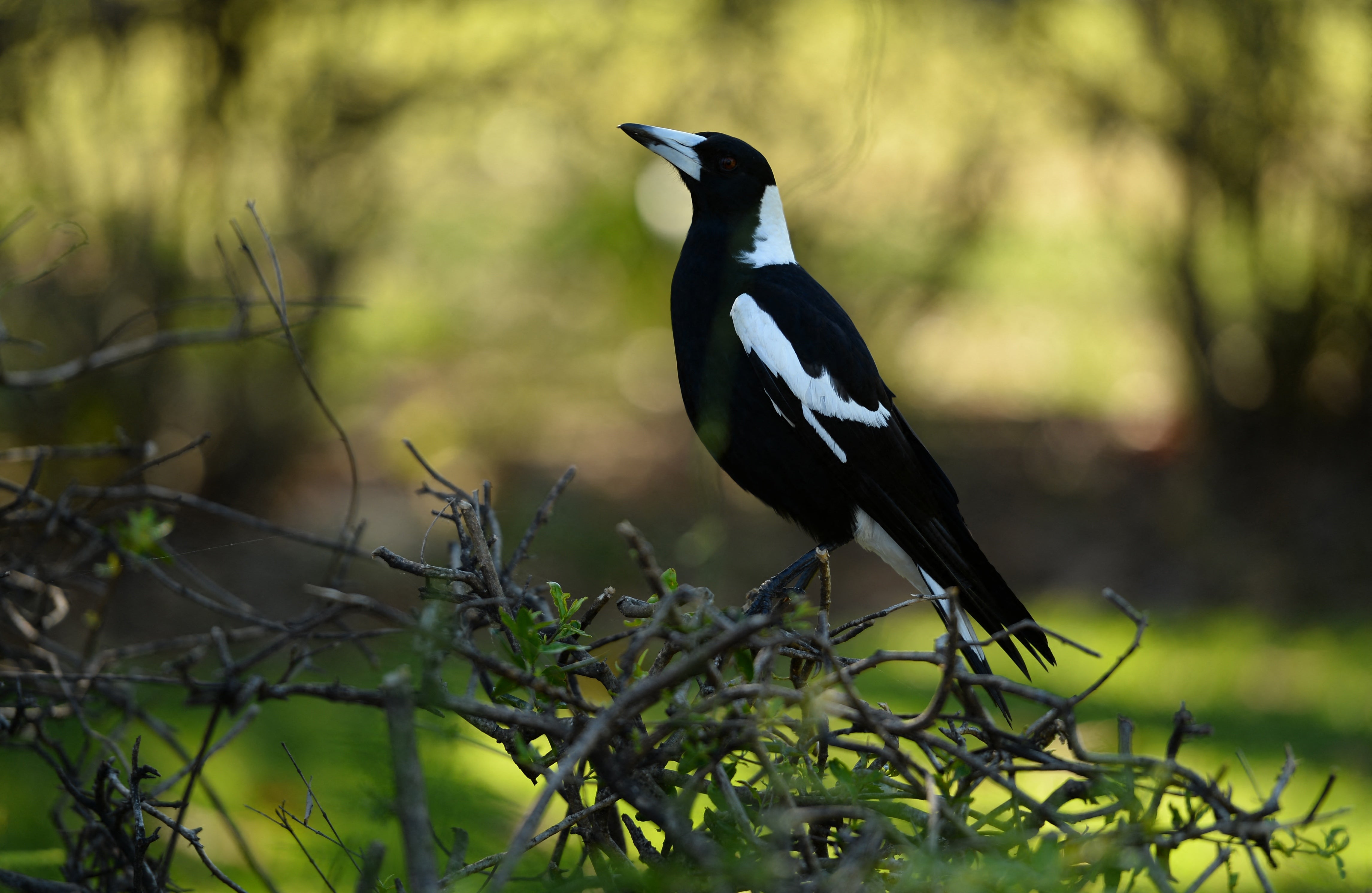‘Altruistic’ magpies help each other remove tracking devices, leave scientists stunned
Scientists say they didn’t expect birds to target specific weakness and team up to get rid of device

Your support helps us to tell the story
From reproductive rights to climate change to Big Tech, The Independent is on the ground when the story is developing. Whether it's investigating the financials of Elon Musk's pro-Trump PAC or producing our latest documentary, 'The A Word', which shines a light on the American women fighting for reproductive rights, we know how important it is to parse out the facts from the messaging.
At such a critical moment in US history, we need reporters on the ground. Your donation allows us to keep sending journalists to speak to both sides of the story.
The Independent is trusted by Americans across the entire political spectrum. And unlike many other quality news outlets, we choose not to lock Americans out of our reporting and analysis with paywalls. We believe quality journalism should be available to everyone, paid for by those who can afford it.
Your support makes all the difference.Australian magpies that were attached with tiny, backpack-like tracking devices for a study showed “seemingly altruistic behaviour” by helping each other remove the tracker, according to a new finding that has left scientists stunned.
The research, published last week in the journal Australian Field Ornithology, showed one of the first evidences of cooperative “rescue” in birds – a behaviour in which an individual Australian magpie, Gymnorhina tibicen, helped another member of the group without getting an immediate, tangible reward.
“Our goal was to learn more about the movement and social dynamics of these highly intelligent birds, and to test these new, durable and reusable devices. Instead, the birds outsmarted us,” study lead author Dominique Potvin from the University of the Sunshine Coast in Australia wrote in The Conversation.
In the pilot study, scientists initially planned to test a new design for a harness that held the tracker using a novel method that didn’t require birds to be caught again to download GPS data from the trackers, or reuse the small devices.
They trapped five magpies using soft-spring-loaded net traps one morning, and attached GPS trackers with harness to them.
The harness, scientists say, had a weak point engineered into the thread that would release when magnetised, which created a passive release system for the retrieval of the GPS tracker, avoiding the need to recapture the birds.
Their idea was that when habituated birds returned to the feeding station, they would encounter a magnet that would release the harness and tracker, allowing the researchers to easily retrieve the GPS device afterwards.
To remove the harness from the birds, researchers said, one either needed either a magnet, or some “really good scissors.”
“We were excited by the design, as it opened up many possibilities for efficiency and enabled a lot of data to be collected,” scientists noted.
While previous studies have shown magpies to be intelligent, social creatures that “excel in problem solving,” scientists said they did not expect the birds to target the specific weakness in the harness and quickly team up to rid the device off each other as a group.
“Notably, removal was observed to involve one bird snapping another bird’s harness at the only weak point, such that the tracker was released,” scientists wrote in the study.
Within ten minutes of fitting the final tracker, Dr Potvin said researchers witnessed an adult female without a tracker working with her bill to try and remove the harness off of a younger bird, and in hours, most of the other trackers had been removed.
“This behaviour demonstrates both cooperation and a moderate level of problem solving, providing potential further evidence of the cognitive abilities of this species,” researchers noted.
Scientists said the study is also one of the first evidences of birds showing rescue behaviour in which a worker tried to free another individual in distress, with no obvious direct benefit to the rescuing individual.
While rescue behaviour has been commonly described in ants, scientists said there are only rare cases noted in birds.
“It is possible that what we have observed is the first documented case of rescue behaviour in Australian magpies,” they added.
However, researchers are unsure if the magpies tested different parts of the harness before being able to snap it off at the weakest point, or if they simply persevered until the harness broke. It is also unclear if the same individual helped each test subject, or if the birds shared duties.
Researchers hope that further specific studies would establish if the magpies worked on a weak point, or if their attempts were random or systematic.
“Nevertheless, further research into cognitive problem solving within magpies, especially in the context of helping other group members, is warranted to further understand collaborative behaviour,” researchers said.
“To our knowledge, this is the first study to report the conspecific removal of GPS trackers, and should be considered when planning future tracking studies, especially on highly social species,” they added.
Join our commenting forum
Join thought-provoking conversations, follow other Independent readers and see their replies
Comments